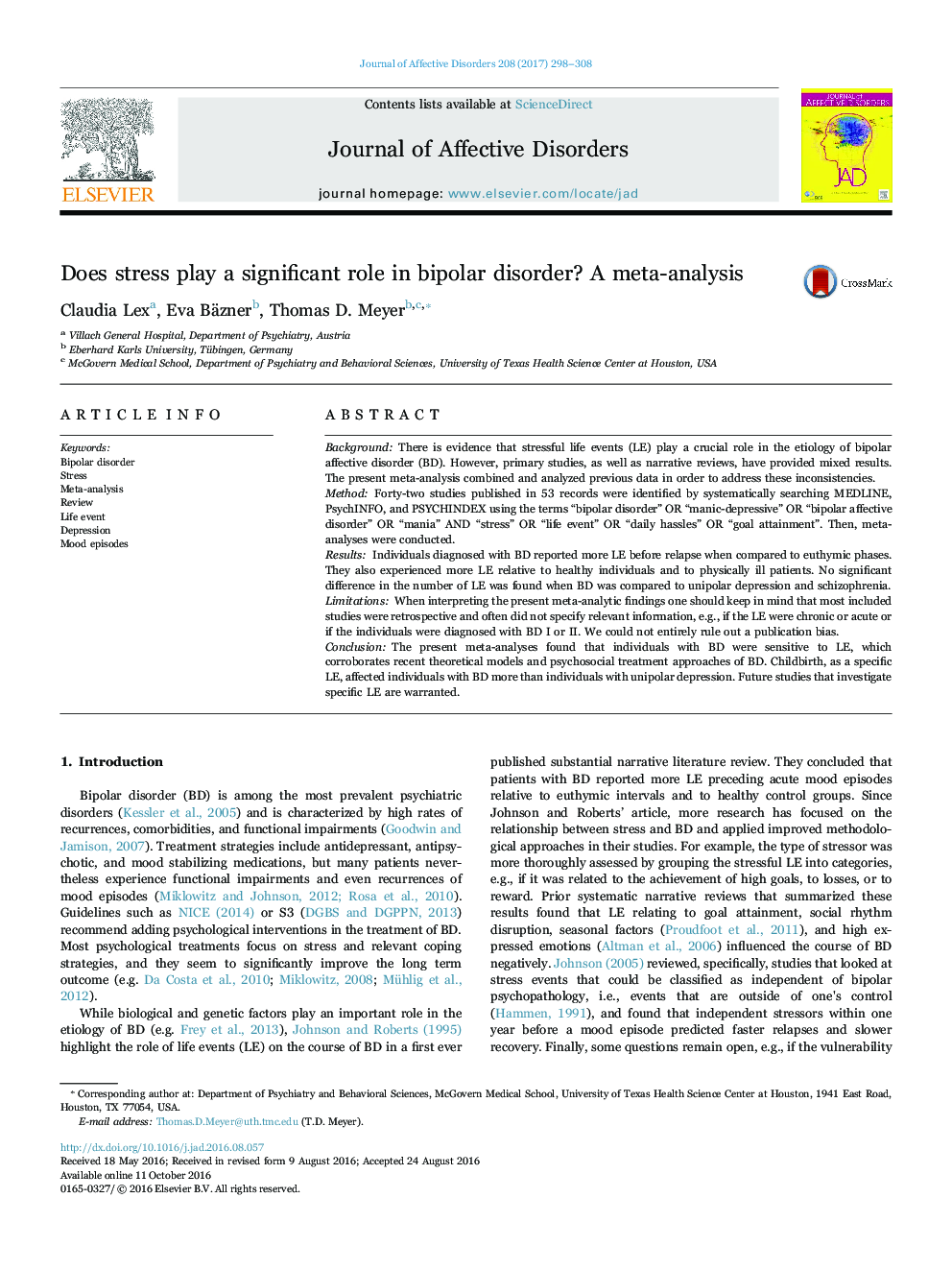| Article ID | Journal | Published Year | Pages | File Type |
|---|---|---|---|---|
| 5722091 | Journal of Affective Disorders | 2017 | 11 Pages |
â¢Individuals with BD reported more LE before acute mood episodes compared to euthymic intervals.â¢Individuals with BD also reported more LE than healthy or physically ill individuals.â¢Stress exposure before acute episodes was similar in different psychiatric groups.â¢Giving birth as a LE had greater impact on relapse in BD when compared to other psychiatric disorders.
BackgroundThere is evidence that stressful life events (LE) play a crucial role in the etiology of bipolar affective disorder (BD). However, primary studies, as well as narrative reviews, have provided mixed results. The present meta-analysis combined and analyzed previous data in order to address these inconsistencies.MethodForty-two studies published in 53 records were identified by systematically searching MEDLINE, PsychINFO, and PSYCHINDEX using the terms “bipolar disorder” OR “manic-depressive” OR “bipolar affective disorder” OR “mania” AND “stress” OR “life event” OR “daily hassles” OR “goal attainment”. Then, meta-analyses were conducted.ResultsIndividuals diagnosed with BD reported more LE before relapse when compared to euthymic phases. They also experienced more LE relative to healthy individuals and to physically ill patients. No significant difference in the number of LE was found when BD was compared to unipolar depression and schizophrenia.LimitationsWhen interpreting the present meta-analytic findings one should keep in mind that most included studies were retrospective and often did not specify relevant information, e.g., if the LE were chronic or acute or if the individuals were diagnosed with BD I or II. We could not entirely rule out a publication bias.ConclusionThe present meta-analyses found that individuals with BD were sensitive to LE, which corroborates recent theoretical models and psychosocial treatment approaches of BD. Childbirth, as a specific LE, affected individuals with BD more than individuals with unipolar depression. Future studies that investigate specific LE are warranted.
